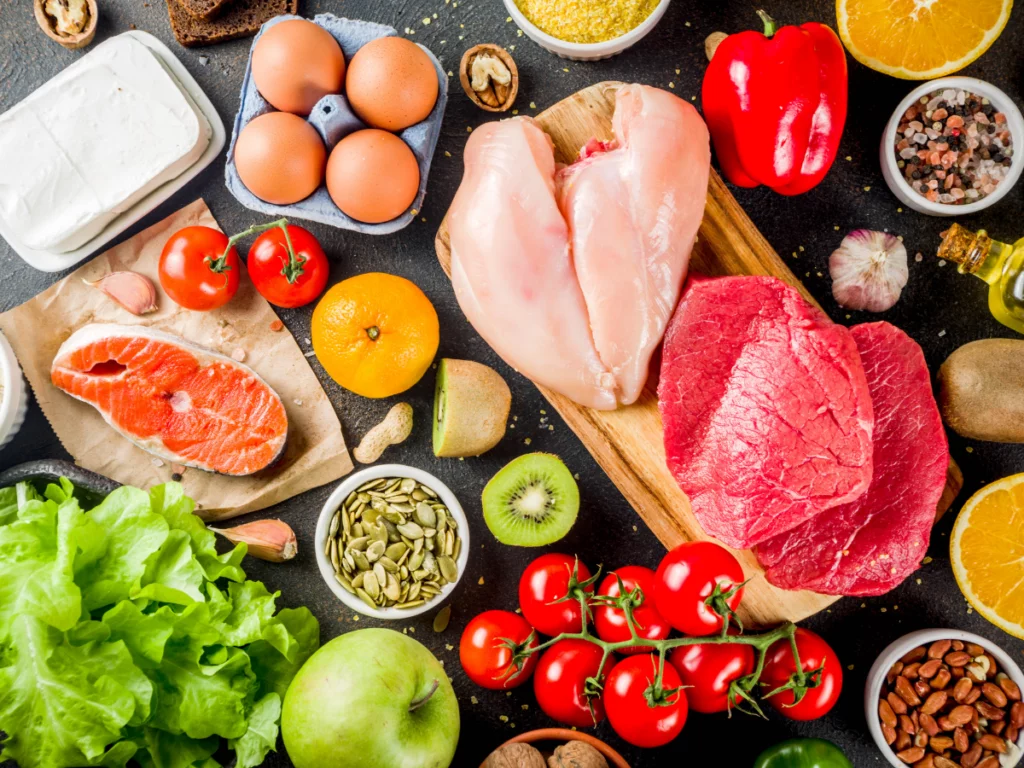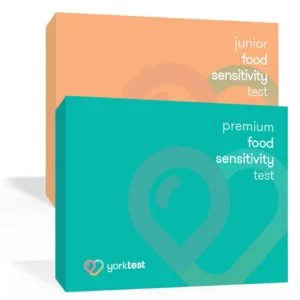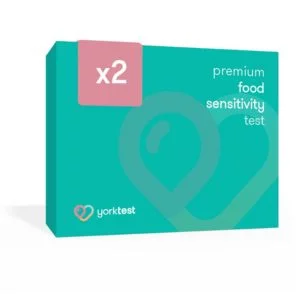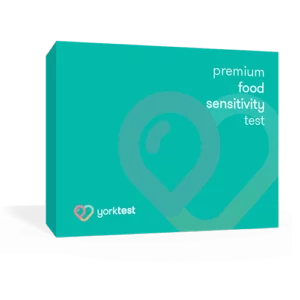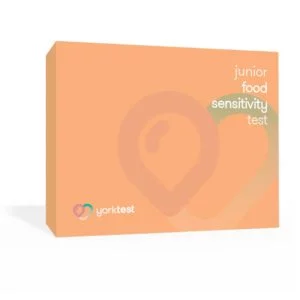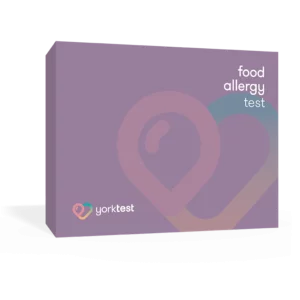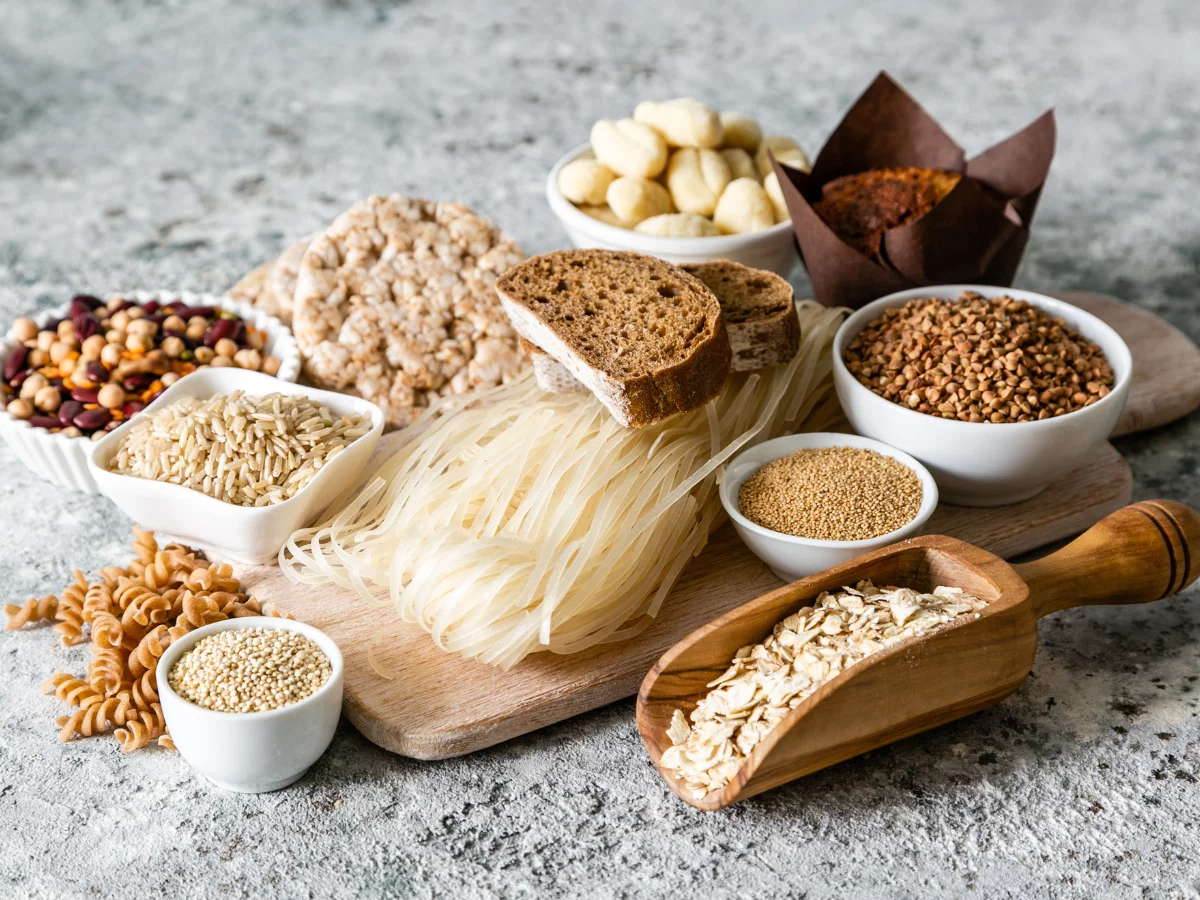- The connection between diet and IBS
- How long do IBS Flare-Ups last?
- Irritable Bowel Syndrome (IBS) Trigger Foods
- Allium Vegetables
- Cruciferous vegetables
- High-fructose foods
- Gluten rich foods
- Dairy products
- Legumes
- Drinks
- Supplementary ingredients
- What to Eat with an IBS Flare Up?
- Understanding your personal food sensitivities
Irritable Bowel Syndrome (IBS) is a condition that affects the gastrointestinal system, particularly the large intestine of the digestive tract. In the United States, IBS affects between 25 and 45 million people, with women twice as likely as men to report symptoms.
Despite its prevalence in the general population, the root causes of IBS continue to perplex scientists and medical practitioners alike. Factors such as diet, lifestyle, mental health, and environmental triggers can and do play a role in the extent and severity of IBS attacks in some individuals. The spectrum of IBS symptoms includes stomach cramps and abdominal pain, excessive bloating, flatulence, diarrhea and/or constipation. For some people, the condition causes mild discomfort, but for others the symptoms are completely debilitating. With no known cure for IBS, current symptom management primarily focuses on symptom relief – with dietary changes being one of the key areas.
In this article, we’ll look at the relationship between IBS and diet. We’ll discuss eight core food groups that people often avoid when trying to find an IBS-friendly diet, and provide insights on how to manage IBS flare-ups effectively. We’ll also look at the best way to identify a suspected food sensitivity to relieve some of the unpleasant symptoms associated with IBS.
The connection between diet and IBS
The role of diet in helping to ease or aggravate IBS symptoms is widely acknowledged, with up to 90% of IBS sufferers actively avoiding specific food products to minimize flare-ups. Whilst monitoring the foods you eat might be a minefield at first, understanding which ingredients are causing you more harm than good is a no-brainer to help manage IBS long term. If you’re wondering how to deal with IBS flare-ups, honing in on these problematic ingredients becomes even more crucial. By identifying and addressing these triggers, you can develop a personalized approach to handling and minimizing the impact of IBS flare-ups on your daily life.
How long do IBS Flare-Ups last?
The duration of IBS flare-ups can vary significantly from person to person. Some people may experience flare-ups that last just a few hours, or potentially up to a day. For others, an IBS flare-up can persist for several days (or even weeks) before symptoms start to improve. Generally speaking, most IBS flare-ups tend to resolve within 3-7 days. The exact length will depend on the severity of the flare-up, as well as the specific IBS triggers involved. Things like stress, certain foods, hormonal changes, and gut infections can provoke more persistent and prolonged flare-ups. Being aware of your own common IBS triggers and flare patterns can help you to better predict and manage the duration of episodes when they occur. Keeping a symptom journal and working with your doctor to identify effective flare treatments are also useful ways to minimize the longevity of IBS flares when they happen.
Irritable Bowel Syndrome (IBS) Trigger Foods
Among the biggest category of trigger food culprits for IBS flare ups are FODMAPs (Fermentable Oligosaccharides, Disaccharides, Monosaccharides, and Polyols).
FODMAPs are carbohydrates and sugars that are not easily broken down and absorbed by the small intestine. In turn, undigested FODMAP foods act like a sponge by drawing water into the gut and trapping it there, along with bacteria that can cause gas, bloating, stomach pain, diarrhea, and/or constipation – all the classic IBS symptoms.
There is good evidence to suggest that a low FODMAP diet can help those with IBS. However, focusing all your dietary changes on FODMAPs can be problematic for several reasons. Firstly, lots of foods contain FOMAPs and, if you were to remove them all from your diet, it would be too restrictive and hard to meet your nutritional needs. Secondly, getting your head around what a ‘Fermentable Oligosaccharide’ or ‘Polyols’ is can be overwhelming, and the added stress could itself contribute to a flare up. Finally, many people have food sensitivities that can trigger an IBS flare up regardless of the FODMAP status of the food.
So, to give you another way to approach making IBS-friendly dietary choices, we’ve broken down eight more familiar and specific food groups that it may be helpful to avoid:
1. Allium Vegetables
Food and flavor go hand in hand when garlic, onions, chives, leeks or shallots are thrown in the pan. Heralded for their antimicrobial and beneficial health properties, these vegetables are part of the Allium family (comprising approximately 500 species). However, for people experiencing IBS symptoms, the cons that come with consuming allium vegetables can outweigh the benefits since they are also major culprits in influencing IBS symptoms. Most allium vegetables are also classed as high FODMAP.
2. Cruciferous vegetables
Cruciferous vegetables – including broccoli, cauliflower, cabbage, and the much loved (or hated!) Brussel sprout – are also difficult for the body to digest, which is why they may trigger IBS flare-ups. When your digestive system breaks these foods down, it can cause bloating, gas, and even occasional constipation. Some vegetables can be tricky to digest even for people with no known history of IBS. If eating them raw interferes with smooth digestion for you, then roasting, boiling, or sauteing them might be enough to make them tolerable. However, if you have a known food sensitivity to cruciferous vegetables, or suspect that they might aggravate your IBS symptoms, then removing them from your diet might be the better option.
3. High-fructose foods
While apples, pears, prunes, apricots, mango, cherries, and other high-fructose foods like raisins are a good source of vitamins and minerals (which contribute to good health), these fruits are naturally high in fructose. Unfortunately, high levels of fructose can cause unpleasant side effects for IBS sufferers. Fructose is a monosaccharide which can be found naturally in fruits and vegetables, or in artificially manufactured sweeteners and added sugars such as sucrose and corn syrup. High fructose corn syrup is usually found in processed foods, commercially-prepared sweets, snacks, and soft drinks.
Studies point to the benefits of a low fructose diet which can improve IBS symptoms in some patients. Fructose malabsorption leads to fermentation in the colon. This can cause unpleasant symptoms such as osmotic diarrhea (loose and watery bowel movements), gas, and bloating.
4. Gluten rich foods
Gluten rich foods such as pasta, pastries, bread, biscuits, and cakes should be enjoyed in moderation as part of a healthy and balanced lifestyle. These gluten-rich treats might help us feel satisfied and full, but they can aggravate IBS attacks.
Acting as a glue that binds food together, gluten is a protein that is found in many types of foods, including in wheatberries, durum, emmer, semolina, spelt, farina, farro, graham, and einkorn. Gluten may also be found in other products like vitamins and supplements, hair and skin products, toothpastes, and lip balm. For people who are intolerant to gluten or who experience IBS flare-ups after consuming foods that contain gluten, there are many great alternatives to choose from in the local grocery store.
5. Dairy products
If you find your IBS attack is imminent after consuming products which are lactose-derived – such as milk, buttermilk, cream, custard, ice cream and cheese – then a first course of action might be replacing them with dairy-free alternatives. These can provide a workable solution to prevent or manage an IBS flare-up. Milk and other foods that contain lactose can further irritate your IBS as they lead to gas and bloating in people who are lactose intolerant. Lactose intolerance is extremely widespread in the global population, with approximately 70% of adults not producing enough lactase. A deficiency in this intestinal enzyme leads to an inability to break down the sugar in milk, which then passes undigested into the colon where it ferments, resulting in abdominal distention and pain.
6. Legumes
Tenderly referred to as the ‘musical fruit’, and including the trusted baked beans or the versatile chickpeas and kidney beans (among others), legumes also contain indigestible compounds known as oligosaccharides. While some plant foods like beans can increase bulk in stools and help to prevent constipation, the saccharide compounds in certain plant foods are resistant to digestion by intestinal enzymes, which can lead to gas, bloating and abdominal cramps as a result. IBS sufferers should try to replace them with low FODMAP alternatives or, if they are able to tolerate them in small quantities, eat them only very occasionally.
7. Drinks
Popular carbonated beverages such as sodas, caffeinated drinks, certain fruit juices, fermented and alcoholic drinks can make IBS symptoms worse and aggravate flare-ups. Because the bubbles in beverages like sodas can produce surplus gassiness (which can irritate your IBS), drinking water and lactose-free milk to quench your thirst might be a better option. Fruit juices and fruit-based drinks might also intensify IBS symptoms, as they are high in fructose.
8. Supplementary ingredients
While seasoning can enrich and add flavor to our favorite meals, certain types of condiments – like herbs and spices, as well as dips, spreads and sweeteners – contain ingredients that may trigger an IBS attack. This doesn’t exclude other everyday essentials we carry around with us, including sugar-free gum. They often contain artificial sweeteners such as xylitol and sorbitol which may cause diarrhea or aggravate existing IBS symptoms. Chewing gum may also lead to additional air ingestion which can lead to abdominal discomfort and bloating.
What to Eat with an IBS Flare Up?
Whether you’re experiencing an acute IBS attack that lasts for a few hours or are dealing with recurring symptoms over several days, making informed choices about the foods you eat can significantly impact your well-being. Here are some of the best foods to consider incorporating into your diet when managing IBS:
- Vegetables like carrots, cucumbers, kale, lettuce, spinach, ginger, potato, radish, olives, pumpkin, and tomato
- Fruits like oranges, mandarins, clementines, strawberries, grapes, and papaya
- Beef, chicken, lamb, pork, and various types of seafood
- Rice, cornmeal, and gluten-free grains
- Eggs, lactose-free milk, cheese and yoghurt
- Olive oil, coconut oil, sesame oil, sunflower oil
- Iced Teas, milk free alternatives that are rice, almond or coconut-derived
While these examples are all part of a low FODMAP diet, even foods like these that might be considered low-FODMAPs should be consumed mindfully. Certain combinations of these foods can result in “FODMAP stacking”, which can put you past the threshold that still causes irritable bowel syndrome symptoms.
Additionally, consider keeping a food diary to track your responses to different foods and identify any patterns that could help you further tailor your diet.
Understanding your personal food sensitivities
Although it is helpful to understand the kind of foods that commonly trigger flare ups in IBS sufferers, identifying your personal food and drink sensitivities is vital to make sure that you make the best choices to optimize your diet and quality of life. Just like with IBS symptoms, trigger foods will vary from person to person. An ingredient that can cause problems for one person could be completely acceptable for another.
Research has shown that people with IBS often have higher levels of food-specific IgG antibodies in their blood. High levels of IgG reactivity to an ingredient can indicate a food sensitivity.
Identifying and eliminating your personal high reactivity foods from your diet can be an important step forward in your management of IBS. With a simple finger prick blood test, the YorkTest Premium Food Sensitivity Test can help you to identify which foods you are reacting to and help to take control of your condition.
- Tests for reactions to 200 food and drink ingredients
- Measures all four subtypes of food-specific IgG
- Home-to-laboratory testing kit
- Secure, online results within 7 days

